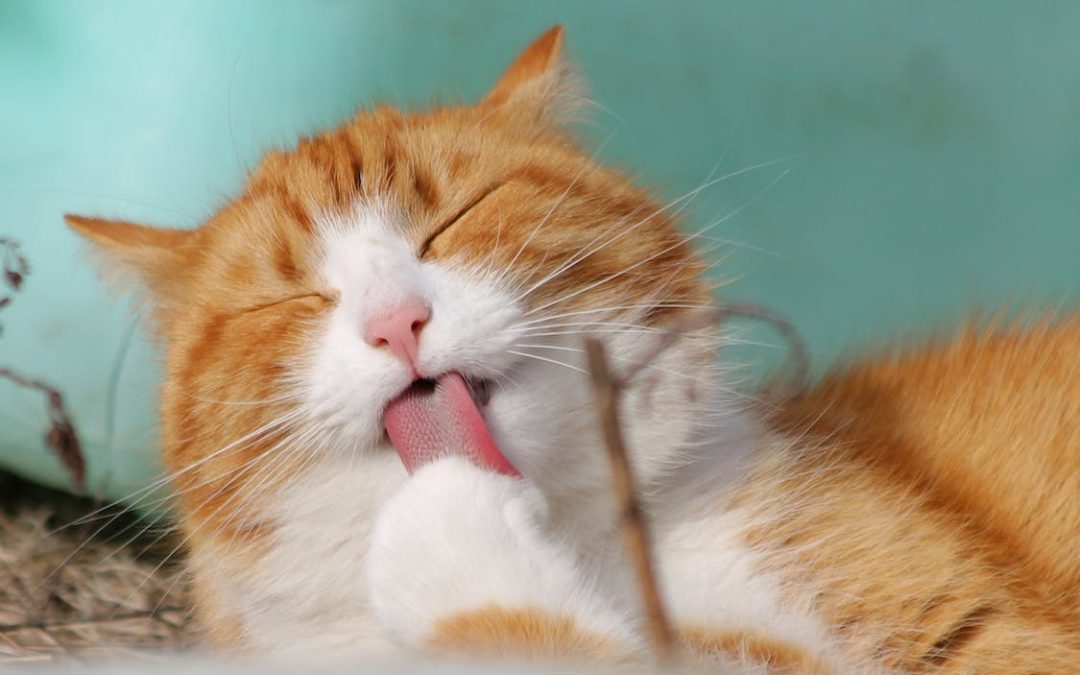Our feline companions bring immeasurable joy, comfort, and companionship to our lives. As loving cat owners, it is our responsibility to ensure their well-being.
Like humans, cats are prone to different health problems, some of which can become severe if not addressed. In this comprehensive guide, we’ll look at some common cat diseases that every cat owner should be aware of in order to provide the best care possible for their furry friends.
1. Feline Upper Respiratory Infections (URI)
Imagine your cat with a stuffy nose and sneezing fits – that’s what a feline upper respiratory infection (URI) looks like. These infections are often caused by a combination of viruses and bacteria, such as feline herpesvirus and calicivirus.
Symptoms include sneezing, nasal discharge, coughing, and watery eyes. Stress, overcrowded living conditions, and poor ventilation can exacerbate URIs. To prevent these infections, maintain a clean and stress-free environment for your cat. If your cat displays symptoms, consult a veterinarian for proper diagnosis and treatment.
2. Feline Leukemia Virus (FeLV) and Feline Immunodeficiency Virus (FIV)
FeLV and FIV are serious viral infections that compromise a cat’s immune system, leaving them vulnerable to other diseases. FeLV is typically spread through close contacts, such as grooming and bite wounds, while FIV is primarily transmitted through bite wounds.
Regular veterinary check-ups and keeping your cat indoors can help reduce the risk of exposure. Early detection is key, as both viruses can have serious long-term effects on your cat’s health.
3. Dental Disease
Cats can suffer from dental problems. Periodontal disease, characterized by plaque buildup and gum inflammation, is a common issue. It can lead to discomfort and even affect vital organs like the heart and kidneys. To promote dental health, introduce regular teeth brushing as part of your cat’s routine, and schedule professional dental cleanings with your veterinarian.
4. Diabetes Mellitus
Obesity, poor diet, and genetics can contribute to diabetes in cats. This metabolic disorder affects how the body processes glucose, leading to elevated blood sugar levels. Increased thirst, frequent urination, weight loss, and changes in appetite are potential signs of diabetes. Managing your cat’s weight through a balanced diet, portion control, and regular exercise can help prevent this condition.
5. Kidney Disease
Chronic kidney disease (CKD) is a prevalent issue among older cats. The kidneys are essential in the filtration of waste materials. The kidneys are essential in the filtration of waste materials from the bloodstream, and when they begin to fail, it can lead to kidney failure. Symptoms of CKD include increased drinking and urination, weight loss, and lethargy. A high-quality, kidney-friendly diet and access to fresh water are essential for maintaining kidney health.
6. Hyperthyroidism
This condition is characterized by the overproduction of thyroid hormones. Hyperthyroidism is often seen in senior cats and can lead to weight loss, restlessness, vomiting, and more. It is important to diagnose hyperthyroidism in your cat in a timely manner and provide appropriate treatment to ensure their well-being.
7. Urinary Tract Infections (UTIs)
UTIs are painful for cats and can cause them to avoid the litter box due to discomfort. Symptoms include straining to urinate, bloody urine, and excessive grooming of the genital area. UTIs can arise from factors such as stress, diet, and hygiene practices. Providing plenty of fresh water and a high-quality diet can help prevent UTIs.
8. Parasites
Parasites, such as fleas, ticks, and worms, can affect your cat’s health. Fleas cause skin irritation and transmit diseases, while ticks can transmit serious illnesses like Lyme disease. Internal parasites, like worms, can lead to digestive issues and malnutrition. Regular grooming, preventive treatments, and routine veterinary visits are essential for parasite control.
9. Inflammatory Bowel Disease (IBD)
Inflammatory Bowel Disease (IBD) is a gastrointestinal disorder that affects the lining of a cat’s digestive tract. The exact cause of IBD is not fully understood. However, it is believed to involve an abnormal immune response to certain diet components. Cats with IBD may experience symptoms such as vomiting, diarrhea, weight loss, and decreased appetite. The condition can be managed through dietary modifications, medications, and close monitoring by a veterinarian.
10. Heartworm Disease
Heartworm disease, commonly associated with dogs, can also affect cats. It is caused by the parasitic worm, which is transmitted through mosquito bites. Unlike in dogs, heartworm infection in cats is often harder to detect and diagnose.
Cats may not show overt symptoms, and when they do, they can include coughing, difficulty breathing, lethargy, and vomiting. Preventing heartworm disease is crucial, as there is no specific treatment for cats once they become infected. Year-round use of a veterinarian-prescribed preventive medication is the best way to protect your cat.
Conclusion: A Healthier Future for Your Feline Friend
As cat owners, it’s our responsibility to prioritize our cats’ health and well-being. To ensure our furry feline friends have long, healthy lives filled with joy and companionship, it’s important to educate ourselves about common cat diseases and take preventative measures. Regular veterinarian check-ups are also essential to ensure your cat’s health and detect any potential issues early.
If you’re seeking reliable and compassionate pet care advice and services, look no further than Belltown Pet Service. Our team is here to provide top-notch care for your furry family members. Get in touch to discuss how we can cater to your pets’ unique needs and ensure they receive the love and attention they deserve. Your pets will thank you with purrs of gratitude!

